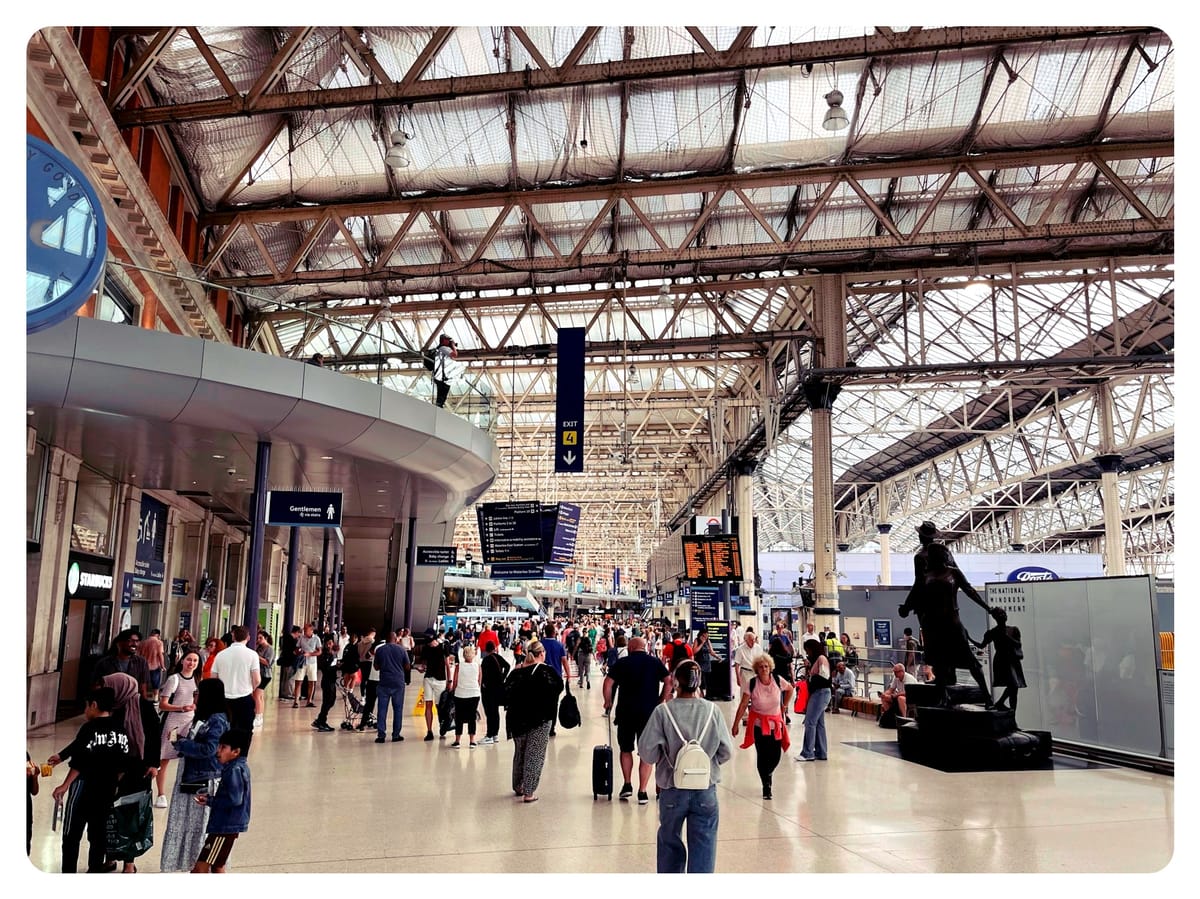Amazon's AI Spying on UK Trains Sparks Privacy Concerns
Thousands of UK train passengers have unknowingly had their faces scanned by Amazon's AI software, revealing a controversial trial in image recognition and emotion detection technology. The data, used for security and potential advertising, raises significant privacy concerns.

Introduction
Thousands of unsuspecting UK train passengers have had their faces scanned by Amazon’s AI technology in a controversial trial that has sparked significant privacy concerns. Newly revealed documents show that the image recognition system was used to predict travelers’ age, gender, and emotions, hinting at potential future applications in targeted advertising.
AI Trials in Major UK Stations
Over the past two years, eight UK train stations, including London’s Euston and Waterloo, and Manchester Piccadilly, have been testing AI surveillance technology. These trials, overseen by Network Rail, employed CCTV cameras to detect safety incidents and reduce crime. The AI used object recognition to monitor trespassing, predict platform overcrowding, identify antisocial behavior, and spot potential bike thieves. Additional trials involved wireless sensors to detect slippery floors and overflowing bins.
Revelations and Concerns
The extent of these trials was uncovered by Big Brother Watch, a civil liberties group, through a freedom of information request. Jake Hurfurt, the group’s head of research, expressed concern over the normalization of AI surveillance in public spaces without adequate public consultation.
The AI system employed a mix of smart CCTV cameras and older cameras linked to cloud-based analysis. Documents from April 2023 indicate that between five and seven cameras were used at each station. One alarming use case included a failed "suicide risk" detection system trial at London Euston.
Demographic Analysis and Emotional Detection
Perhaps the most controversial aspect was the AI's capability to analyze passenger demographics and emotions. Cameras captured images as people crossed a "virtual tripwire" near ticket barriers. These images were analyzed by Amazon’s Rekognition system to produce statistical data on age, gender, and emotions like happiness, sadness, and anger. This data was intended to enhance advertising and retail revenue.
Expert Warnings and Regulatory Concerns
Experts have long cautioned against using AI to detect emotions, deeming it unreliable. In October 2022, the UK’s Information Commissioner’s Office warned against emotion analysis technologies, labeling them as immature and potentially ineffective.
Network Rail's Response
Network Rail did not respond to questions about the trials, including the status of AI usage and privacy concerns. A spokesperson stated that the organization uses advanced technologies to protect passengers and comply with relevant legislation.
Transparency and Privacy Issues
Documents revealed that the emotion detection analysis was treated with caution and eventually discontinued. Gregory Butler, CEO of Purple Transform, which worked on the trials, confirmed no images were stored during active use.
Network Rail's documents highlighted the AI's ability to send automated alerts to staff upon detecting certain behaviors, excluding controversial face recognition technology. This AI system has been credited with swiftly detecting trespassing incidents and enhancing safety measures.
Global Trends and Ethical Implications
Similar AI surveillance systems are being implemented globally, such as during the upcoming Paris Olympic Games. Carissa Véliz, an associate professor at the University of Oxford, warns of the potential for expanded surveillance and its impact on freedom and liberal democracies.
Conclusion
The rollout of AI surveillance in UK train stations raises critical questions about privacy, transparency, and the ethical use of technology in public spaces. As AI continues to advance, balancing security with individual freedoms will remain a pivotal challenge.




